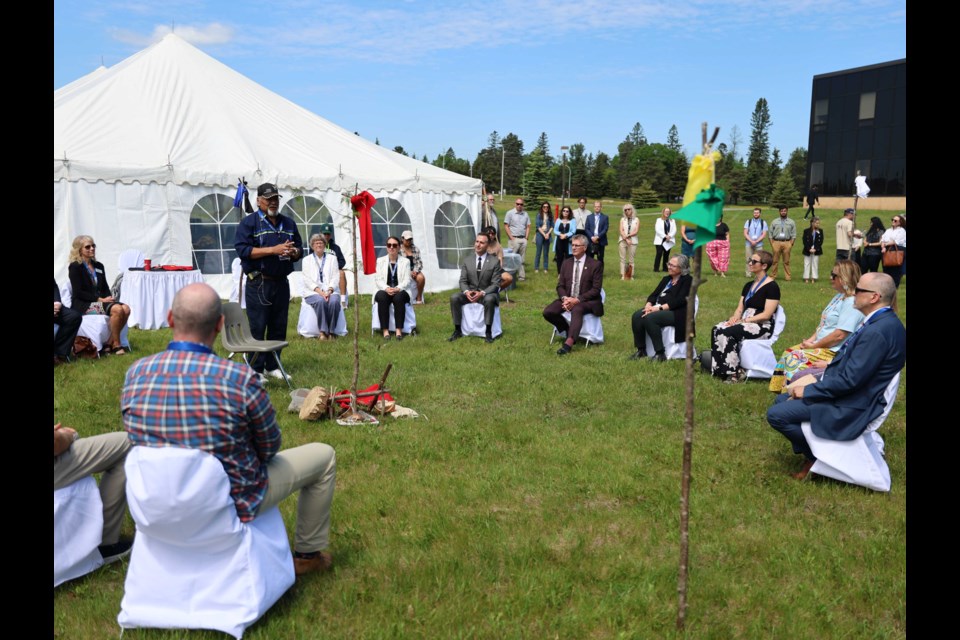THUNDER BAY — A ground blessing, not breaking, ceremony was held Tuesday at what will soon be the site of Lakehead University's Gakina Awesiinyag veterinary program.
“I just couldn't be more excited about reaching this phase in the work of this project,” said university president Gillian Siddall.
"I have two beautiful golden retrievers, Maisie and Callum,” she said. “I lived in Thunder Bay for 17 years, then I was away for eight years and then came back and I always had dogs, I always had vets and then I… couldn't get a vet.”
Siddall said that experiencing life without access to veterinary care made her realize how vital animal health care is, motivating her to advocate for funding.
“It was difficult to get vets for pets, and then also very difficult to get vets for farm animals, which, also has a significant impact on the region,” she said.
Agriculture Minister Trevor Jones was at LU to announce a $2 million contribution to the project from the arms-length Northern Ontario Heritage Fund Corporation.
“When people move to a community they check for schools, they check for doctors, they check for their personal care, and they check for their animal care because most Ontarians, they actually have pets,” said Jones.
The new animal education facility, as designed by Hamilton-based architecture firm mcCallumSather, will feature large and small animal housing and a clinical skills training space.
Renovations to existing buildings will include combined anatomy/pathology and clinical skills labs in addition to other relevant training spaces.
“The building is going to be this amazing high-tech building that will house the animals here that students will be training with,” Siddall said. “So, we'll have cows, sheep, horses and dogs in this building, so I can't wait for that.”
The facility is expected to be completed in two years, but the Collaborative Doctor of Veterinary Medicine Program will admit its first students this fall.
The initial northern cohorts will complete their studies at the Ontario Veterinary College in Guelph.
Starting in 2027, northern cohorts will begin their training in Thunder Bay but still complete the program in Guelph.
The university is looking to raise another $12.9 million and will launch a public fundraising campaign this fall, welcoming all donations from across Ontario.
